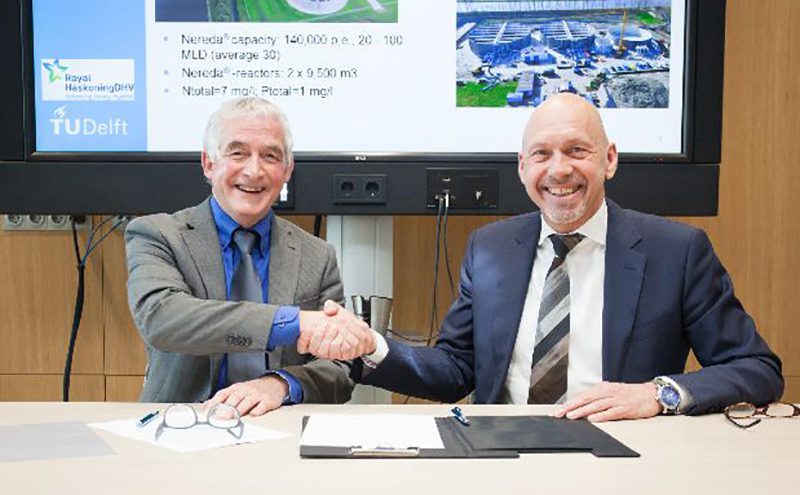
Royal HaskoningDHV and Delft University of Technology have signed an agreement (on 8 December) stating that patented technologies used to extract valuable biopolymers from Nereda® wastewater treatment sludge are transferred to Royal HaskoningDHV. This gives the company the worldwide rights to apply these technologies to wastewater treatment installations using Royal HaskoningDHV’s Nereda technology. This technology originated from research at the Delft University of Technology.
In addition to its small footprint, energy and cost savings, and phosphate recovery, Nereda® technology opens up the opportunity to recover a biopolymer mix produced by the bacteria purifying the wastewater. This new reusable substance can easily be harvested and has the potential to unlock economically interesting applications in the paper and textile industries, in the agricultural sector, but especially in the development of advanced nanocomposite materials.
Enabling new research
Karel Luyben, Rector Magnificus Delft University of Technology: “Part of the agreement we signed on 8 December is that Royal HaskoningDHV will fund PhD research for the coming 10 years. Furthermore, the company pays for the made patent costs, which will enable the university to hire another PhD researcher, which will open up new fields of research for us.”
René Noppeney, Global Director of Water Technology Products & Innovation at Royal HaskoningDHV: “This contract means that Royal HaskoningDHV not only has the patents for the Nereda technology, but also the patents to extract a valuable new raw material from Nereda process excess sludge. That is a great combination!”
Circular economy
Delft University of Technology and Royal HaskoningDHV cooperate in a joint national research and development program together with Foundation for Applied Water Research STOWA, Dutch water authorities, global industrial ecosystem Simadan and ChainCraft biosobased innovators to investigate and develop the recovery and reuse of biopolymers derived from wastewater treatment processes. This development contributes to the further circularization of the economy, and the cost-effective treatment of wastewater.








